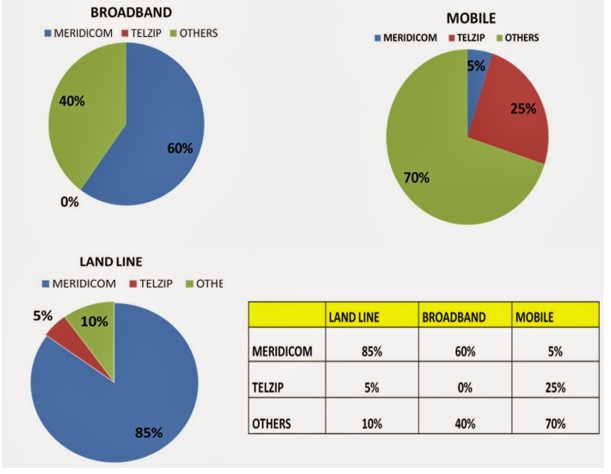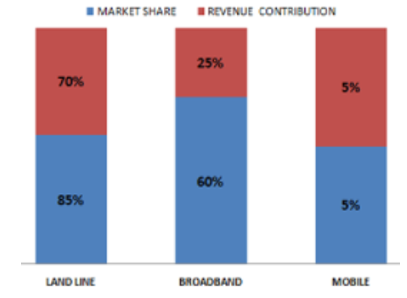The Upstart Assault Case: Meridicom And Telzip
Mar 17,22The Upstart Assault Case: Meridicom And Telzip
Question:
Discuss about the The Upstart Assault Case for Meridicom and Telzip.
Answer:
Introduction
The Upstart Assault Case for Meridicom and Telzip
Student name:
Student ID:
Module name:
Table of Contents
Introduction. 3
Case analysis. 3
Conclusion. 6
Reference list 7
Introduction
This topic dives deep into the upstart assault case between Telzip and Meridicom. Telzip and Meridicom are telecom companies that have a neck-to-neck competition. Meridicom is a well-established and one of the most successful telecom companies which offer high-scale production of various types of telecom facilities. On the other hand, Telzip is a considerably small telecom company and it also lacks in marketing capabilities and skills. The main dispute took place when Telzip changed its marketing strategy in order to hike its market price just like Meridicom. This strategy was not liked by Meridicom as it could serve as a big threat to the company and hence a cold war between these two companies began.
Case analysis

Figure 1: Meridicom and Telzip case analysis
Source: (majhi et al., 2022)
The main issue that took place between these two telecom companies is when Telzip changed its marketing strategy. Earlier, Meridicom was a leading company in the telecom sector and it also dominated the telecom industry with its effective marketing strategies. Telzip at the time was a small company that had no significant market presence. Meridicom never considered Telzip to be tough competition and Meridicom was also sure that no other company will ever be able to compete with Meridicom (Nemati et al., 2018). Telzip used to be a company that manufactured mobile phones and did not have effective marketing strategies and it was also far behind Meridicom. Telzip was entering the broadband market business which was dominated by Meridicom. Although Telzip had no effective marketing strategies, it adopted a strategy on entering the broadband business which shook Meridicom. Telzip adopted the strategy of offering free broadband services in their packaging along with mobile programs and landline of the customers switched to their company from Meridicom. Meridicom became very furious as they never expected that Telzip would adopt such a strategy and lure its customers by offering free broadband connection. This came as a huge blow to Meridicom as they never imagined that Telzip had the skill or capabilities to adopt an effective marketing strategy at the expense of their company (Parsheera, 2018). Telzip was already a leading company in the mobile phone service business and their strategy to enter the telecom service business was a great threat to Meridicom. Meridicom became overwhelmed on hearing about this strategy as they feared that their position in the broadband service market could be dethroned by Telzip. This issue led to a huge dispute between the two companies and resulted in a cold war between the two companies. The companies were now to decide what they should do next. Meridicom had to decide if they would ignore the strategy of Telzip so that they could move forward with their business or if they would like to do some counterattack in order to suppress Telzip. This rivalry shook the entire broadband business market. The fact that Telzip is already a leading company in the mobile service sector would be of great threat to Meridicom as this market presence of Telzip would lead Meridicom in losing a huge percentage of the company’s market share in landline and broadband services (Adame, 2021). Meridicom has an 85% market share in the landline and broadband business and in order to maintain its position the company will have to apply effective strategies to give tough competition to Telzip.

Figure 2: Market share and revenue contribution of Telzip
Source: (majhi et al., 2022)
Some of the most evident reasons that served as a huge threat to Meridicom are:
Losing customers: The fact that Telzip offered free broadband services could result in Meridicom losing its loyal customers. The business organisations that previously purchased broadband services from Meridicom will now switch to Telzip due to the fact that their broadband services are offered free of cost (Purnamasari et al., 2020). Business organisations mostly rely on broadband connections that provide them with internet networks and the cost that they have to pay at the end of the month when they use broadband services from Meridicom is very expensive. Telzip will now offer similar services but at a much cheaper rate and hence many business organisations will automatically choose Telzip over Meridicom.
Internal problems: Meridicom is also facing many internal issues. The company has also been facing many technical issues that have led to poor feedback from its customers. Many customers have complained that Meridicom’s broadband network fluctuates and they often face technical issues while using Meridicom’s broadband service. The sales manager at Meridicom has also mentioned that many customers are complaining that the broadband service of Meridicom is very expensive. Meridicom sends invoices of three different types which include landline bills, mobile bills and broadband bills. Paying all these bills separately is also a hectic task. On the other hand, Telzip only sends one invoice statement that includes all types of bills. This is much more convenient and less confusing. Hence this can also serve as a potential reason for Meridicom losing its loyal customers.
Fear of other entrants: With the marketing strategy that has been adopted by Telzip, Meridicom now fears that other companies also might follow the steps of Telzip and apply similar strategies to enter Meridicom’s business market (Hajar et al., 2020). Meridicom also feared that other companies may adopt even more strategic and effective marketing methods that would be a great threat to the company. This would mean that Meridicom would lose even more customers and the presence that Meridicom had on the broadband service market would eventually fade. This will also result in poor income and lower sales and the company could even run in the loss.
Conclusion
Hence it can be concluded that the main reason behind the rivalry between Meridicom and Telzip is mainly due to a strategy that Telzip applied to enter the broadband business market that was dominated by Meridicom for a long time. Meridicom was shocked when Telzip applied this marketing strategy as Meridicom never imagined that Telzip had the potential to take such a strategic step. Meridicom feared that their customers would switch to Telzip due to the fact that Telzip offered free broadband services if the customers chose to switch to their company, Meridicom feared that they might lose a huge percentage in market share and the presence in the broadband market would also fade away.
Reference list
Adame, B. O. (2021). The Ethiopian telecom industry: gaps and recommendations towards meaningful connectivity and a thriving digital ecosystem. Heliyon, 7(10), e08146. DOI: https://doi.org/10.1016/j.heliyon.2021.e08146
Hajar, M. A., Ibrahim, D. N., Darun, M. R., & Al-Sharafi, M. A. (2020). Value innovation activities in the wireless telecommunications service sector: A case study of the Malaysian market. Journal of Global Business Insights, 5(1), 57-72. Retrieved from: https://digitalcommons.usf.edu/cgi/viewcontent.cgi?article=1125&context=globe
majhi, a., majhi, a., & profile, V. (2022). CASE ANALYSIS: MERIDICOM VS TELZIP. Ajit-majhi.blogspot.com. Retrieved 20 January 2022, from http://ajit-majhi.blogspot.com/2013/11/case-analysis-meridicom-vs-telzip.html.
Nemati, Y., Mohaghar, A., Alavidoost, M. H., & Babazadeh, H. (2018). A CLV-based framework to prioritize promotion marketing strategies: a case study of telecom industry. Iranian Journal of Management Studies, 11(3), 437-462. Retrieved from: https://ijms.ut.ac.ir/article_66635_00019325d08790619a0f9c02d1f0d503.pdf
Parsheera, S. (2018). Challenges of competition and regulation in the telecom sector. Economic & Political Weekly, 53(38), 45-52. Retrieved from: https://macrofinance.nipfp.org.in/PDF/Parsheera2018_Regulation-in-the-Telecom-Sector.pdf
Purnamasari, I., Handayanna, F., Arisawati, E., Dewi, L. S., & Sihombing, E. G. (2020, November). The Determination Analysis Of Telecommunications Customers Potential Cross-Selling With Classification Naive Bayes And C4. 5. In Journal of Physics: Conference Series (Vol. 1641, No. 1, p. 012010). IOP Publishing. Retrieved from: https://iopscience.iop.org/article/10.1088/1742-6596/1641/1/012010/pdf





